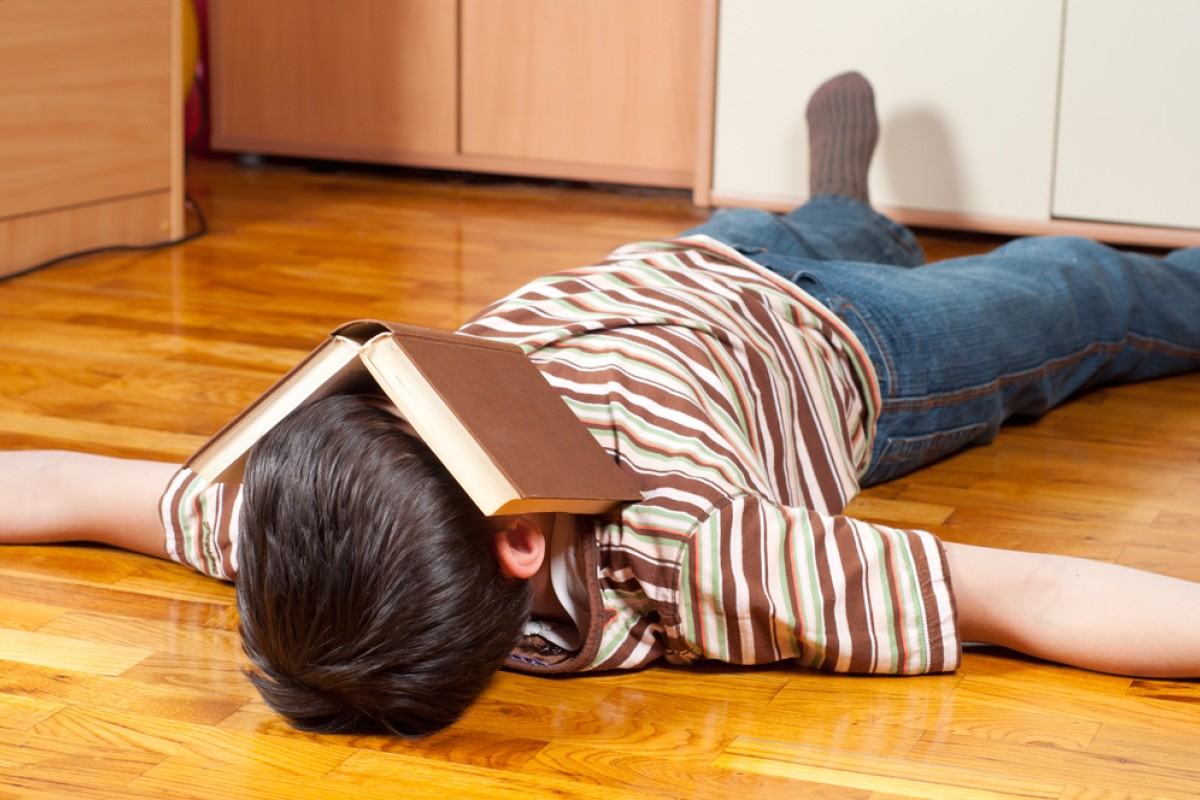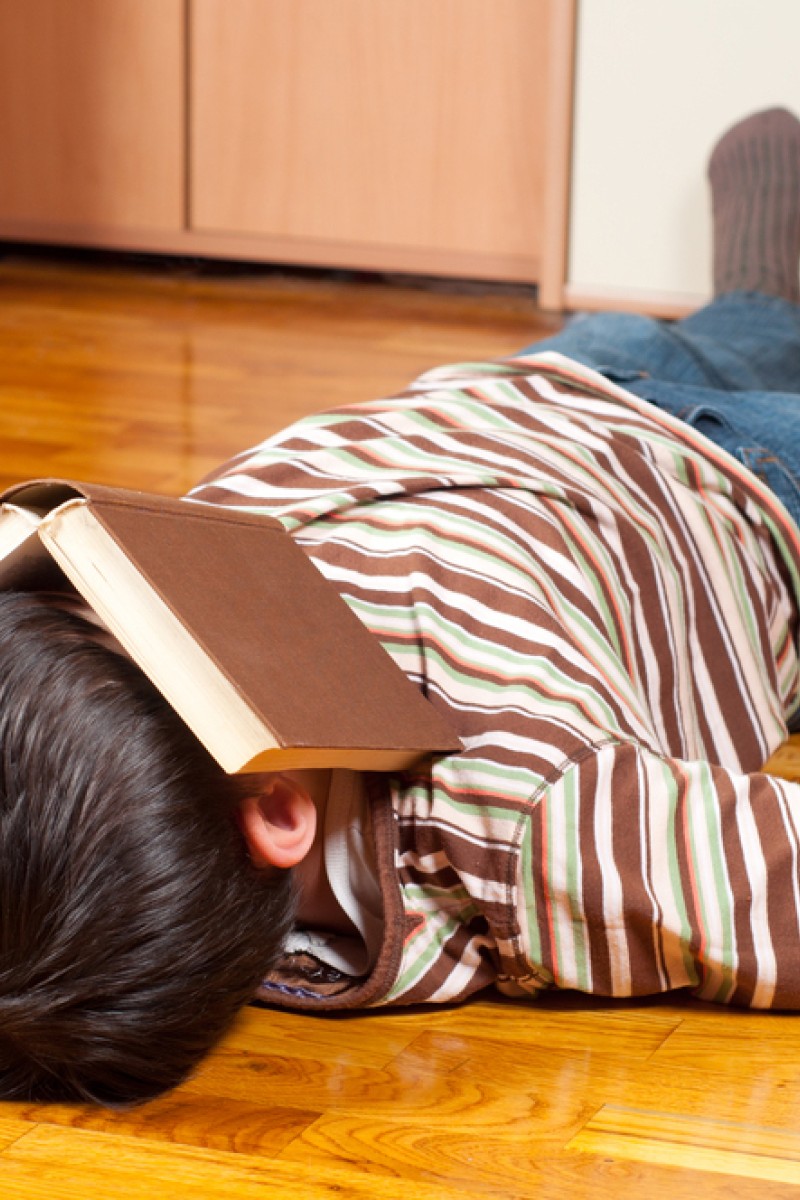
Ben, our 16-year-old, regularly evokes what we call his Catalogue of Grievances. Picture the Sears Wishbook, but mental, and, you know, the opposite: a ledger of all the perceived wrongs he’s endured at our cruel or hapless hands. He loves to reminisce about them, flipping the book open at a seemingly random page to rehearse his injuries or shame, poking at it the way you might tongue a sore gum to reassure yourself that it still hurts. Or maybe more like the way you crack your knuckles - a kind of satisfyingly dramatic pop and stretch that doesn't actually hurt. Or maybe more like gallows humour. The fact that I’m not sure which of these it is may turn out to be significant.
"Tell me some of your classic grievances," I say now, because I’m writing about them, even though it's a school morning and he's trying to spread cream cheese on a bagel before it cools.
"Let me think," he says patiently. "I mean, once they're flowing, they’re really flowing. But sometimes it can be hard to get them started. I mean, besides, like, the obvious."
Don't get him started
"The sleep grievances," his younger sister Birdy clarifies. "Don't get him started," she adds, but must not mean, because she follows up by cuing him delightedly: "Virginia, Ben, right? And New Hampshire! And New Hampshire again, the summer after!"
Sleep Grievances is a book of many chapters listing all the times Ben has been slumberingly wronged on vacation. At a friend's lake house, when he was 8, he was sullenly miserable over the arrangements: his father and me aloft in a lofty queen-size; he and his sister together on the floor on a flattened futon.
Were these the accommodations of a first-class sleep citizen? (Spoiler: They were not.) At a Virginia family reunion a year earlier, he'd complained so bitterly about a deflating air mattress that I finally conceded irritably, "Fine. Enough. Sleep in the big bed with Daddy. I’ll sleep on the air mattress." ("That was the worst of all!" he says now, with cheerful bitterness. "Getting what I wanted, but you were mad, so I couldn’t be happy about it. I didn’t even want it anymore. Plus, I felt bad about it! The worst!")
Flipping through his ready examples of sub-standard bedding and placement, he lurches into full-on good-natured nostalgia. "They’re really flowing now, right?" he says, laughing, brushing bagel crumbs from his shirt. And this is the paradox: a happy, golden person - the always-smiling kind who says, even in the middle of this conversation, "Can I toast you a bagel, Mama?" - flipping pleasantly through his hoarded-up wrongs. "Ah, the cataloguing of grievances!" he sighs. "It’s my favourite thing."
Wallowing in the swamps of prior unhappiness
I’m not totally sure about the work we’re doing, entertaining these conversations, or if it is actually productive. Certainly Ben feels understood, somehow, in his wronged littleness, his unhappy former dependence. Some fundamental, nagging unseenness is redressed. Maybe it's that, happy now, with a happily attentive audience, he can wallow safely in the fleeting swamps of his prior unhappiness. Who wouldn't want that, I suppose - a loving ear turned towards your affronted venthole.
Ben mentions some other grievances, old favourites all: the time their father tried to smuggle a trunkload of unloved stuffed animals to the Goodwill, and was caught by the kids, who wept a river that floated the animals back into the safe harbour of the house; various scoldings about piano practice or video games; grown-ups telling secrets in front of him; the generalised humiliation of being a child. "Mistakes were made," their father whispers to me, and I laugh.
Thankings galore
"Oh, another of my biggest all-time grievances, category-wise?" Ben says, his eyes lighting up. "All those times you sent me back into somebody's house to thank them for dinner, or for having me over or whatever. Or that time I swerved around someone on my bike, and you made me go back and apologize. Ugh."
This actually surprises me. "Really?" I say. "I mean, I can understand why it was upsetting at the time. But I would imagine you’d look back and think, Yeah, that had to be done. I had to be civilised."
But he doesn’t feel that way, it turns out. He feels like it was traumatic and pointless. "Nobody cared if they got thanked or apologised to or whatever," he says, and the fact that this was not so much our point reminds me that he's like a pan of gooey brownies: if you had to take it out of the oven now, it would be totally edible - delightful, even, in its way - but it could really use another minute or two of baking.
Like a war story
"Do you think it’s possible to be a good parent and never make your kids feel ashamed?" I ask him, and he says he really doesn't know. It's a question that I have wondered about their whole lives, but it doesn't get at the thing Ben wants to say, apparently. Because he's trying to tell me how deeply he cherishes his grievances and the practice of airing them.
"It's like telling stories of past wars," he explains, his voice ironically grave, "to make sure they don't happen again. If I were all Let bygones be bygones! Then you wouldn't have to worry about the grudges I'm holding. And I want you to worry - to be aware of the long-lasting effects of my unhappiness. I want you to feel like, We must keep the grievances from happening again!" He laughs merrily.
I wonder about the conclusions he draws now, about all these wrongs he's suffered. "Do you feel like you had an unhappy childhood?" I ask confidently, knowing that he doesn't. This kid who lights up the room, lights up our lives. Who, despite being 10 feet tall with a massive teenaged life of his own, says on a Friday afternoon, "Oooh, Mama, should we make popcorn and watch some on epic fails on Youtube?" (Yes.) Who talked us into buying the IKEA couch he wanted by using a rhetorically brilliant "family cuddling" argument. Who is sugar and sunshine.
Last day of childhood
That's why this pastime is so delightful, I think. It proves to me, in its backwards way, that Ben is happy, or else he wouldn't so delightedly discuss his unhappiness. We've encouraged it, like the way we’ve encouraged his dislike of raw tomatoes -to give exaggerated space to the negative thing so that it's clear where it is, that it's unique. I think that this is what we used to call, in my lit-crit days, a containment strategy.
I'm the kind of parent who's cool and transparent, is more or less what I'm thinking to myself. Like a smug rapper.
But Ben is hesitating. "Not an unhappy childhood," he says slowly, horrifying me. "But flawed, sure."
He smiles and picks up the cat, presses its whiskery face into my neck and says, in the catss voice, "Kiss me."
If it were the last day of childhood, and Ben were writing in my parenting yearbook? I know he’d say all nice things. But it almost is, really - the last day of childhood - and he’s doing something else too. I think it’s called becoming his own person.
Catherine Newman is the author of the books Catastrophic Happiness and "Waiting for Birdy," as well as the blog Ben & Birdy.
